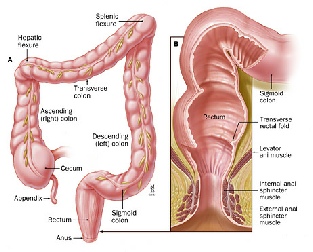The Low Rectal Cancer and Bowel Management
Each year in the United States 146,000 people will be told that they have colon/rectal cancer. Rectal cancer accounts for about 25% (36,500 cases) of total colon/rectal cancer cases.
Being diagnosed with any form of cancer is devastating. However, low rectal cancer is, unfortunately, unique. Although, if discovered early, the cancer can be successfully treated, the odds are that the cure will lead to permanent bowel function problems that are rarely disclosed by the medical community.
This web site is dedicated to rectal cancer survivors who have been recently diagnosed, have to make wise medical choices, have completed their surgery and perhaps adjunct therapy and are now living with the consequences of the treatment.
The primary goal of this site is to educate and support survivors of the 76% o f rectal cancer survivors whose rectal cancer occurred in the lower two thirds of the rectum. The likely consequences of the surgical treatment of cancer in the lower 2/3 of the rectum is permanent bowel functional problems. When the remaining segment of the rectum and the colon are subjected to radiation and chemotherapy, the effects are amplified. The symptoms include excessive stool frequency, soiling, fecal incontinence, urgency, clustering, fragmentation, and incomplete evacuation.
f rectal cancer survivors whose rectal cancer occurred in the lower two thirds of the rectum. The likely consequences of the surgical treatment of cancer in the lower 2/3 of the rectum is permanent bowel functional problems. When the remaining segment of the rectum and the colon are subjected to radiation and chemotherapy, the effects are amplified. The symptoms include excessive stool frequency, soiling, fecal incontinence, urgency, clustering, fragmentation, and incomplete evacuation.
The physical and psychological impact of bowel functional problems can be devastating. Bowel function is the one issue in your life that is very uncomfortable to discuss with even your closest friends. Even though many people may know that you have been treated for rectal cancer, most assume that once you have completed your "treatment" that you are "cured" and you are the same as you were before your diagnosis. This is not true because bowel function problems have a continuing impact on your life style, self-esteem, confidence and social functioning.
The most common recommendation to patients to reduce bowel problems is referred to as “Bowel Management". It involves changes in diet and the use of drugs to affect the timing of bowel movements. The option that is rarely discussed is the daily use of a large volume tap water enema to prevent stool from ever reaching the remaining rectum. Because no stool ever reaches the rectum, none of the bowel functional problems are experienced.
This technique has been used for decades to address bowel functional issues caused by a variety of anorectal and spinal cord dysfunction, fecal incontinence and habitual constipation. This tactic goes by a variety of names such as rectal washout regime, rectal irrigation, transanal irrigation, etc. and has been extensively studied and is medically approved.
This site explores the use of the daily enema in great detail to address the bowel functional problems that is caused by the treatment of low rectal cancer. It included many medical articles that discuss in great detail all aspects of rectal irrigation. It also includes a detailed method of doing a daily enema during the morning shower or while sitting on the toilet so that can be made part of a daily routine and can be accomplished in about 30 minutes.
Many pages of this site has an "Educate Yourself" section that contains articles about issued discussed on the page along with key words that you can Goggle to do your own research. It is your life. Educate and explore.
Educate Yourself:
Nursing Study A study by British nurses about rectal irrigation
Rectal Irrigation A study of transanal irrigation.
Understanding Bowel Cancer - A good non-technical overview
A Patent's Guide to Rectal Cancer - A general discussion about rectal cancer
Colon and Rectal Cancer - A non-technical article with a lot of charts and pictures
Colorectal Cancer - A detailed journal about the discovery of colon cancer
Explore on Goggle with these key words:
Colorectal Cancer, Bowel Cancer, Rectal Cancer
Low Rectal Cancer